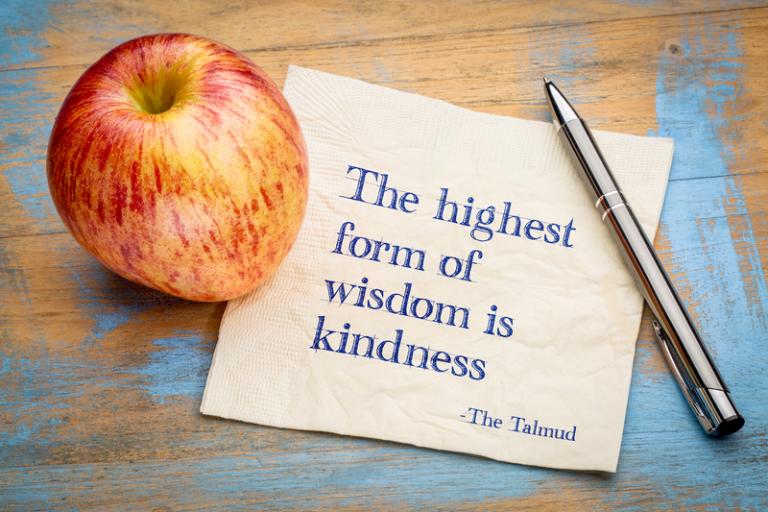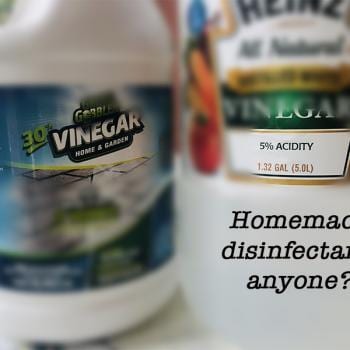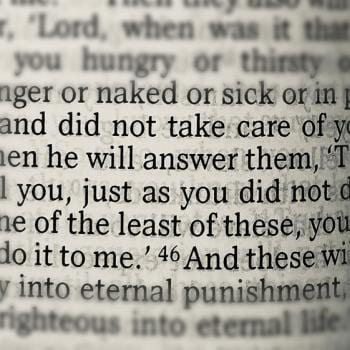There is one, and only one, vital key to getting through this crisis: always, always work toward kindness in voice, tone, and touch. Such a move will not eliminate the craziness, but kindness is, thank goodness, amazingly contagious, perhaps even more so than the virus that causes COVID-19.

I entered the front door after a good walk Saturday afternoon. Suddenly, the walls of our house closed in on me as the ever-beneath-the-surface claustrophobia unsheathed its destructive claws and tore into my psyche. Let us say that my long-suffering husband did not enjoy the best afternoon of his life.
To make it worse, guilt grabbed my soul and rendered me worthless as a human being. Here is the thing: I’m one of the lucky ones in the midst of this long COVID-19 nightmare engulfing the entire world. Our house is both spacious and light, we have only the two of us, plus, of course, our adorable Remy, living here.
We were accidentally adequately supplied with toilet paper from an absentminded shopping trip before the crisis hit. Although I can’t get rubbing alcohol or hand sanitizer anywhere, we also have plenty of hand soap. We get to “enjoy” grocery shopping at designated Senior Citizen hours at a local market. (Bless those workers–may grace and peace surround them. I make a point to carefully, from a distance, thank each one we encounter.)
We can get great take-out without a problem and since I do hate cooking, that is HUGE. I have plenty of early spring gardening chores to keep me busy outside. AND, we live in a neighborhood where may walk safely and with plenty of distancing.
 Furthermore, we are actually talking with our widely scattered family members than ever before as we make good use of current communication technologies.
Furthermore, we are actually talking with our widely scattered family members than ever before as we make good use of current communication technologies.
And finally, after over two weeks of near-total isolation and very careful practices, it is clear that neither of us has come down with COVID-19, seasonal allergies now clearly the sources of somewhat frequent coughs and sneezes.
In other words, I’ve got it really good. And while I still have a tendency to climb the walls, I am now calmer and coping better. Again, thanks to the many kindnesses from long-suffering and extremely loving husband and the heart-warming connections, albeit electronic, from children, family, and friends.
I worry about the whole world: undoubtedly many are equally claustrophobic
And that is also when my real worry for the world as a whole sets in. How shall we get through this? How shall those people cope who must live on top of each other, who, like me feel the walls closing in, who may find food and household supplies scarce, whose income sources may have suddenly disappeared, who can’t get fresh air and good exercise? Their irritation levels with each other could easily reach mountain-peak heights, or, more likely, deep ocean impenetrable darkness.
Where will we find the resilience to see our way through this?
I’ve read multiple accounts of people who lived through the worst of World War Two deprivations and fears. Many who did survive looked back with a sense of fondness for those days. They found in themselves unexpected reservoirs of courage and resourcefulness, along with high levels of generosity and kindness to neighbors and strangers alike.
Mostly, they reached out to one another, building shared memories that became a permanent bonding glue.
They were in this together. Unfortunately, we are in this apart.
We must distance ourselves from each other. We can’t touch and hold and offer life-giving hugs to one another.
All this suddenly brings a special memory: my youngest son, perhaps around the age of six or so, had heard somewhere that a person needed eight hugs a day to be healthy. So, he took it upon himself to make sure that I got the daily eight-hug requirement sweetly fulfilled. I loved it!
I suspect the lack of hugs, more than anything else, is going to bring the most significant pain here. Those who are lucky enough to be confined with others have the advantage here. They can, should they wish, help fulfill that quota. Those who live alone, or who are now forced into isolation, face something very different.
But I’ve also been thinking about the kinds of irritations that arise with way, way too much togetherness. So there is something I’d like to suggest.
Kindness is the key
As an active pastor, I did my share of pre-marital counseling. Eventually, with experience, I was able to condense a great deal of important relational wisdom into one sentence. “If you treat anyone better, with more kindness, tenderness, or respect, than you treat your spouse, then you violate your marital covenant and promises.”
When I would offer that statement, I would often see the light of understanding, and, perhaps, a bit of shock, in the eyes and expressions of the engaged couple. Over the years, I’ve become more and more convinced of the correctness of my statement. The person to whom we owe the very best of ourselves is our life-partner.
And, of course, that is the very person who generally gets the worst of us. That’s the one who, sadly, sees the unvarnished, unpolished, unmannered, uncontrolled sides of us. Sometimes, that person with whom we have entered into that covenant relationship becomes the verbal (and sometimes far more than verbal) punching bag. That special person too often also gets the proverbial back of our hand with discourteous behaviors, unwashed bodies, surly attitudes, and unleashed frustrations from other sources.
And we wonder why tensions rise.
Again, why would we treat the one, at least in traditional marriage services, we’ve promised to love and cherish, to stay together in sickness and health, for better or worse, in such a manner? That’s the continual challenge of living in intimacy with others: the surface polish that we often present to others disappears when we walk in the door.
[Just an aside here: I’m aware that shared intimate living arrangements without a formal commitment ceremony are increasingly common for many legitimate reasons. However, I see one particularly significant issue: without some set of formalized, agreed-upon covenantal basis, there may not be these kinds of promises to stand upon. And under these kinds of circumstances, that lack of formalized commitment may end up being more problematic than expected. Nonetheless, what I have to say here applies across the board.]
There is a solution. Simple to say. Complicated, naturally, to do. All worthwhile things are. But here’s what works: practice bringing that surface polish to our internal lives. Now is the time, more than any other time, to engrave the arts and habits of self-control, patience and massive, massive amounts of kindness firmly on our souls.
Now is the time to listen carefully to what comes out of our mouths, pay attention to our voice tones, raise awareness of muscle tension we may carry around. Which is likely a lot.
As we place our focus here, rather than on the person whose habits have grown increasingly irritating, we can tease out from the fabric of our internal noise the things that tend to set us off. For example, too much loud noise, especially from the TV, comes near to driving me over the edge.
One we know our little trigger points, we may then sort out ways to pull back from the edge and that don’t involve lashing out at those around you. In a situation like this, when loss of control becomes the norm, not the unusual, we each must recognize personal responsible for our emotional life and the way we act out of those internal turbulent waves.
For me, on that one example, the judicious use of earplugs solves many issues. I’m more relaxed, more in tune with my soul, and better able to deal with the unusual stressors, along with the usual ones, that beset us all in magnified ways right now. When I use the earplugs, I don’t have to ask others else to sacrifice their comfort for mine. We stay in this together, and together, we are far more likely to get through it all.
One tiny step toward lessening the stress and tension. And anything that reduces tension helps. Anything.
Learn to hold thoughtful conversations, ones with agreed-upon guidelines as to how to listen and how to speak, to air the tensions without blaming the other, just naming them, and looking for creative solutions.
There is one, and only one, vital key: always, always work toward kindness in voice, tone, and touch. Such a move will not eliminate the craziness, but kindness is, thank goodness, amazingly contagious, perhaps even more so than the virus that causes COVID-19.
All of this starts with ourselves–we can’t ask anyone else to begin the process. And always, always remember: there are a lot of people who have it worse than you do. And, in the long history of humanity, far, far worse things than this have happened. The resilient survive and even thrive. Those whose resiliency is informed and strengthened by kindness then go on to transform the world.
We can do this. May each of us learn to swim with competence in the graces of kindness and self-control. And take lots and lots of deep breaths. We are part of the history that future generations will someday learn. May we acquit ourselves well.
Photo credit: ID 108544808 © Marek Uliasz | Dreamstime.com













